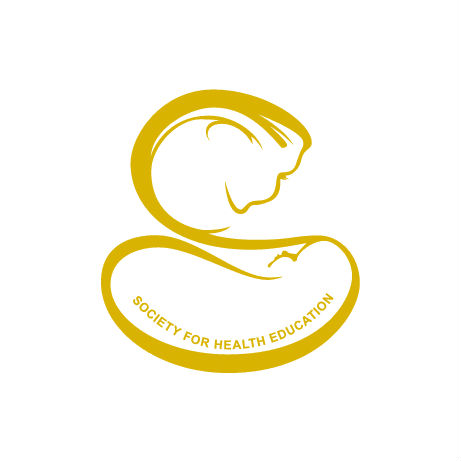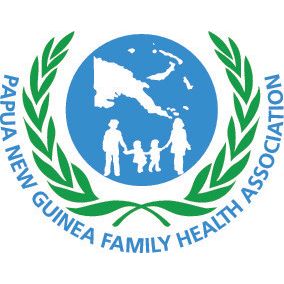

| 31 March 2016
Society for Health Education (SHE) Maldives
Society for Health Education (SHE) is an organization that is proactive in identifying and addressing the crucial health and social concerns of the Maldives. SHE was founded in 1988 by four women with the mission to enhance the quality of life of Maldivian families. The organization embraces the following mandate: Strive to improve the quality of life of the Maldivian people Harness the expertise of national professionals, on a voluntary basis for development programmes Endeavour to raise awareness of health and social issues Today, SHE is one of the largest, most vibrant NGOs in the Maldives which addresses issues concerning Thalassemia, Counselling and Psychosocial Support, Sexual and Reproductive Health (SRH) and Health Education. The organization reaffirms its commitment to sustain these initiatives, and to further increasing public awareness on issues that influence family well-being. Effectiveness of health promotion initiatives are ensured by adopting applicable service delivery mechanisms, fostering improvements in reproductive health parameters, continuing Thalassemia prevention activities, promoting responsible parenthood concepts, facilitating empowerment of women and youth, supporting victims of abuse by providing gender based violence screening services, essential SRH services and psychosocial support and referral services, as well as extending Counselling to adolescents and families, and encouraging community ownership of development. SHE operates an in-house clinic offering a range of services under one roof in the Maldives capital, Male’. The in-house clinic provides three main services; SRH services, counselling and psychosocial services, and thalassemia and diagnostic services. The SRH clinic of SHE has a long-standing reputation for client friendly and quality service provision on SRH and various other general health issues. The clinic conducts mobile outreach activities including awareness programmes targets for Key Affected Populations. Under the HIV and AIDS programme of the clinic, free Voluntary Counselling and Testing (VCT) services are offered to the general public. The Thalassemia prevention programme undertaken by SHE comprises an awareness component along with provision of screening services.The prevention programme aims to reduce the number of thalassemics born in the Maldives by providing testing services to identify thalassemia carrier status and raising awareness of how the disorder is inherited. The first, and only thalassemia DNA testing facility in the Maldives was established at SHE in 2005 to minimize the number of inconclusive results. The Counselling and Psychosocial services comprises face to face counselling, telephone counselling, and play therapy for young children. In addition to day to day regular services, the clinic conducts several skill development programmes targeting young people, vulnerable populations, teachers and parents. Furthermore, the organization adopts an integrated approach to health education and service delivery and its role includes increasing the accessibility of services and using media for education and communication. This includes collaborating with other Civil Society Organizations and State Institutions that work towards relating to issues on health and well-being. The society runs outreach programmes and mobilizes voluntary support to develop projects and to maintain and enhance service provision. With this number of services, SHE reaches over 5000 people of the population of the Maldives yearly. The success of the organization depends on the unreserved commitment of the organization’s members, volunteers, and staff. SHE strives to raise the bar higher at every opportunity, to ensure that the organization could progressively add greater value to clients and stakeholders, thereby uplifting the community’s general wellbeing.

| 09 December 2020
Papua New Guinea Family Health Association
The Papua New Guinea Family Health Association (PNGFHA) was established in 1981 and registered in the same year under Section 7 of the Associations Incorporation Act, Papua New Guinea. PNGFHA became an IPPF Collaborative Partner in 2001 and then an Associate Member, approved at the December 2020 Board of Trustees meeting. The Association's Head Office was originally based in Lae, Morobe, but was relocated to the capital Port Moresby, in 2015. PNGFHA currently operates across 8 static clinics in Port Moresby (3), Lae, Markham and Bulolo (Morobe Province), Goroka (Eastern Highlands Province), and Kokopo (East New Britain Province), and are operated from facilities provided either by the Provincial Health or the district authorities. PNGFHA has a staff of 25, both clinical and non-clinical, and is supported by an extensive network of volunteers. Each clinic has regular outreach services to remote populations, providing safe and confidential SRH services and raising awareness. In 2021, PNGFHA delivered 220,038 SRH services to 53,497 clients, more than 90 per cent of whom were poor/ vulnerable. The clinics provide a wide range of SRH services including STI and HIV awareness, family planning, responding to cases of gender-based violence, and counselling. Legal services for survivors of sexual and gender-based violence (SGBV) are also provided due to need. Other programs include the youth/adolescence comprehensive sexuality education with out-of-school and in-school youths. Various outreach programs such as mobile clinics and awareness have also been implemented in partnership with local Provincial Health authorities. Currently PNGFHA have 3 furnished operational youth centres and youth clinic which provide support for the youth volunteer network, community outreach, CSE both in and out of school. Youth friendly spaces offer youth the opportunity to access information, receive counselling and a friendly safe space where young people can meet and share ideas. The youth friendly clinic provides access to quality and relevant youth centred SRH services and referrals, in the case of SGBV, by staff that are sensitive and trained to dealing with young people. Outreach involves activities mostly identified by the young people themselves, ranging from awareness in a school settings and communities, during a community event, community and government organised activities such as cultural shows and sports events. Through outreach events, trained youths are able to reach out to their peers and motivate them to access more information and services.







